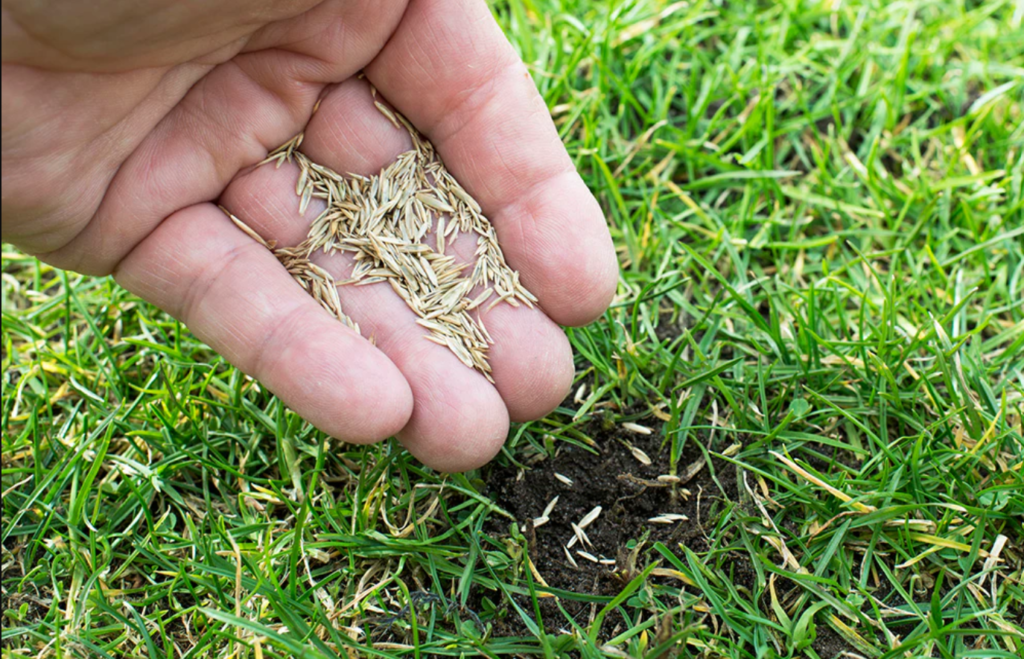When it comes to planting grass, the type of seed you choose makes all the difference. Whether you’re aiming for a lush, green lawn or a healthy, productive pasture, selecting the right seed is crucial. But what’s the difference between lawn seed and pasture seed, and how do you know which one is right for your project? Let’s dive in and explore the distinctions.
Purpose and Use
Lawn Seed: Lawn seed is specifically formulated for residential or commercial landscapes where the primary goal is aesthetic appeal. This type of seed is designed to produce a dense, uniform, and visually pleasing turf that can withstand foot traffic and regular maintenance. Lawn seed varieties often focus on creating a soft, green carpet that enhances the beauty of your yard.
Pasture Seed: Pasture seed, on the other hand, is geared towards agricultural purposes, where the main objective is to provide high-quality forage for livestock. The focus here is on durability, nutritional value, and growth rate rather than appearance. Pasture seeds are chosen to create a robust, hardy environment that can withstand grazing and support the dietary needs of animals like cattle, horses, and sheep.
Seed Varieties
Lawn Seed: Lawn seed mixes from Nature’s Seed typically include varieties like Kentucky bluegrass, fescues, and ryegrass. These grasses are selected for their fine texture, vibrant green color, and ability to form a thick turf. They are bred to thrive in specific climates and soil conditions, providing a soft and attractive lawn that’s easy to maintain.
Pasture Seed: Pasture seed blends usually consist of a mix of grasses and legumes, such as timothy, orchardgrass, clover, and alfalfa. These plants are chosen for their nutritional content, resilience, and ability to regenerate after being grazed. The goal is to produce a pasture that supports healthy livestock growth and provides a sustainable food source throughout the grazing season.
Growth Requirements
Lawn Seed: Lawn grasses often require well-prepared, fertile soil with good drainage to establish a thick, healthy turf. They need regular watering, mowing, and occasional fertilization to maintain their appearance. Additionally, lawn seeds are usually bred to resist diseases and pests, which helps keep your lawn looking pristine.
Pasture Seed: Pasture grasses, on the other hand, are designed to thrive in a range of soil conditions, from fertile to less-than-ideal soils. They are more drought-tolerant and can handle inconsistent watering, making them suitable for larger, less-maintained areas. Pasture seeds are also selected for their ability to grow quickly and recover from grazing, ensuring a continuous supply of forage for livestock.
Maintenance and Care
Lawn Seed: Maintaining a lawn requires a bit more attention, as the focus is on keeping the grass looking good. This means regular mowing, watering, fertilizing, and possibly even aerating the soil. You might also need to reseed patches where the grass has thinned out.
Pasture Seed: Pasture management is more about ensuring the health and sustainability of the forage. This includes managing grazing patterns, rotating pastures, and occasionally overseeding to promote regrowth. The goal is to maintain a balance between the needs of the livestock and the health of the pasture.
Cost Considerations
Lawn Seed: Because of the emphasis on aesthetics and specialized growth requirements, lawn seed can be more expensive per pound than pasture seed. However, the investment pays off in the form of a beautiful lawn that boosts your home’s curb appeal.
Pasture Seed: Pasture seed is typically sold in larger quantities at a lower price per pound since it’s intended for planting expansive areas. The cost is influenced by the specific mix of grasses and legumes, but overall, pasture seed is more economical for large-scale planting.
Choosing the Right Seed
When deciding between lawn seed and pasture seed, consider the purpose of your planting. If you’re looking to create a picturesque lawn for relaxation and entertainment, lawn seed is your best bet. However, if your goal is to establish a productive pasture for livestock, pasture seed will provide the durability and nutrition your animals need.
Understanding these differences ensures that you select the right seed for your specific needs, leading to better results and a more successful planting project. Whether you’re aiming for a beautiful lawn or a thriving pasture, the right seed choice is the first step toward achieving your goals.

